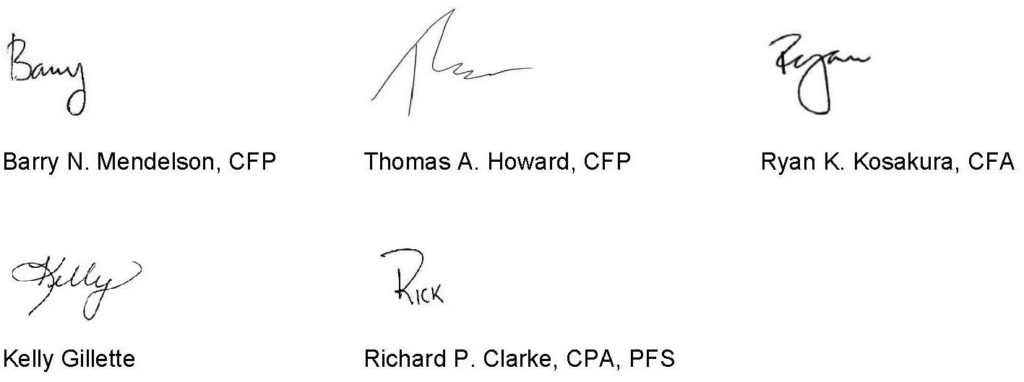Our hearts go out to those whose families and livelihood have been affected by the coronavirus outbreak. Though the government’s and other agencies measures may seem extreme, we believe they are in the public’s best interest to slow, contain, and eventually rid us of this scary situation.
At the moment, a great deal is unknown about the financial impact the outbreak will have on companies and the economy. Certainly some industries have been hit harder than others. Namely, travel, leisure, and transportation stocks. Throw in OPEC and Russia sparring over oil production and the energy sector has been dragged down as well (though low oil prices are generally supportive of most other sectors of the economy).
The current market environment reminds us a little of September 11, 2001. In both cases you had a massive shock to the market with travel, leisure (sporting events, etc.), and all related businesses being disrupted. And again, we have investors trying to guess how the markets, government, companies, and individuals will react. The biggest difference between now and then? Then you had a sector of the economy that was grossly overvalued (many tech and dot com companies) and eventually collapsed. Now the economy is on much more solid footing.
While what we are experiencing is unnerving and everyone should be vigilant about their health, at the present time it is predominately a health crisis and not a major financial crisis. The decline in the stock market has been sharp and swift … and reflects not economic fundamentals, but uncertainty around how long it will take to get through this calamity. For example, The Walt Disney Company’s stock has declined 24% since the U.S. stock market peaked on February 19th. Today, while there had been no reported cases of COVID-19 at Disneyland Resort, they announced they were closing Disneyland Park and Disney California Adventure through the end of the month. Despite natural disasters, wars, and economic downturns – this is only the fourth time in Disneyland’s history they’ve had to close since opening July 17, 1955. Yet, through it all, The Walt Disney Company has performed very well and significantly enriched its shareholders. Disney is just one example of how companies survive and so too will your investment portfolio.
For more perspective and how to handle periods of market volatility, Dimensional Fund Advisors (a resource partner of Elevation Wealth Partners) posts timely articles on their blog here.
As always, we are here to be a calm and reassuring voice during these challenging times.
Your Elevation Wealth Partners Team,
Market volatility update and resources
Our hearts go out to those whose families and livelihood have been affected by the coronavirus outbreak. Though the government’s and other agencies measures may seem extreme, we believe they are in the public’s best interest to slow, contain, and eventually rid us of this scary situation.

At the moment, a great deal is unknown about the financial impact the outbreak will have on companies and the economy. Certainly some industries have been hit harder than others. Namely, travel, leisure, and transportation stocks. Throw in OPEC and Russia sparring over oil production and the energy sector has been dragged down as well (though low oil prices are generally supportive of most other sectors of the economy).
The current market environment reminds us a little of September 11, 2001. In both cases you had a massive shock to the market with travel, leisure (sporting events, etc.), and all related businesses being disrupted. And again, we have investors trying to guess how the markets, government, companies, and individuals will react. The biggest difference between now and then? Then you had a sector of the economy that was grossly overvalued (many tech and dot com companies) and eventually collapsed. Now the economy is on much more solid footing.
While what we are experiencing is unnerving and everyone should be vigilant about their health, at the present time it is predominately a health crisis and not a major financial crisis. The decline in the stock market has been sharp and swift … and reflects not economic fundamentals, but uncertainty around how long it will take to get through this calamity. For example, The Walt Disney Company’s stock has declined 24% since the U.S. stock market peaked on February 19th. Today, while there had been no reported cases of COVID-19 at Disneyland Resort, they announced they were closing Disneyland Park and Disney California Adventure through the end of the month. Despite natural disasters, wars, and economic downturns – this is only the fourth time in Disneyland’s history they’ve had to close since opening July 17, 1955. Yet, through it all, The Walt Disney Company has performed very well and significantly enriched its shareholders. Disney is just one example of how companies survive and so too will your investment portfolio.
For more perspective and how to handle periods of market volatility, Dimensional Fund Advisors (a resource partner of Elevation Wealth Partners) posts timely articles on their blog here.
As always, we are here to be a calm and reassuring voice during these challenging times.
Your Elevation Wealth Partners Team,